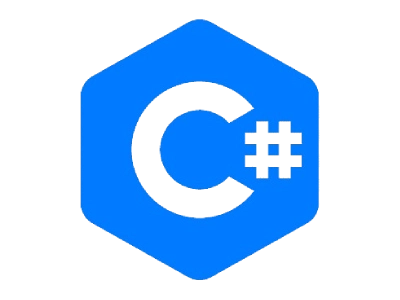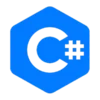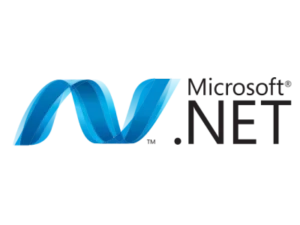C# Certification
The fundamental concepts of the C# programming language will be covered in this course, Introduction to C#. These concepts include Datatypes, Variables and Operators in C#, Structure of C#, Conditional Statements in C#, and more.You will have a comprehensive knowledge of why C# is a fantastic choice for a web development profession by the end of this course.
Overview
With a focus on its fundamental ideas, syntax, and real-world software development applications, this course provides a thorough introduction to C# programming.
The foundations of C#, such as variables, data types, control structures, and object-oriented programming concepts, will be covered through practical exercises and projects.
You will have the knowledge and practical abilities necessary to use C# to build apps with confidence by the end of the course.
What you will learn in C# Certification course?
- Introduction
- Object-oriented concepts
- Reading & Writing Data
- Accessing a Database
- Accessing Remote Data
- GUI Design
- Improve application performance
- Assemblies and custom attribute
- Encryption & Decryption
Who Should Attend C# Certification course?
- Programmers and Testers
- Web designers
- Graphic designers
- Front-end developers
Our Package
Lessons
- Overview of Writing Application by Using Visual C#
- Data Types, Operators, and Expressions
- Visual C# Programming Language Constructs
Lab : Implementing Edit Functionality for the Students List
- Implementing Insert Functionality for the Students List
- Implementing Delete Functionality for the Students List
- Displaying a Student’s Age
Lessons
- Creating and Invoking Methods
- Creating Overloaded Methods and Using Optional and Output Parameters
- Handling Exceptions
- Monitoring Applications
Lab : Extending the Class Enrolment Application Functionality
- Refactoring the Enrolment Code
- Validating Student Information
- Saving Changes to the Class List
Lessons
- Implementing Structs and Enums
- Organizing Data into Collections
- Handling Events
Lab : Writing the Code for the Grades Prototype Application
- Adding Navigation Logic to the Grades Prototype Application
- Creating Data Types to Store User and Grade Information
- Displaying User and Grade Information
Lessons
- Creating Classes
- Defining and Implementing Interfaces
- Implementing Type-Safe Collections
Lab : Adding Data Validation and Type-Safety to the Application
- Implementing the Teacher, Student, and Grade Structs as Classes
- Adding Data Validation to the Grade Class
- Displaying Students in Name Order
- Enabling Teachers to Modify Class and Grade Data
Lessons
- Creating Class Hierarchies
- Extending .NET Framework Classes
Lab : Refactoring Common Functionality into the User Class
- Refactoring Common Functionality into the User Class
- Implementing Password Complexity by Using an Abstract Method
- Creating the ClassFullException Custom Exception
Lessons
- Reading and Writing Files
- Serializing and Deserializing Data
- Performing I/O by Using Streams
Lab : Generating the Grades Report
- Serializing Data for the Grades Report as XML
- Previewing the Grades Report
- Persisting the Serialized Grade Data to a File
Lessons
- Creating and Using Entity Data Models
- Querying Data by Using LINQ
Lab : Retrieving and Modifying Grade Data
- Creating an Entity Data Model from The School of Fine Arts Database
- Updating Student and Grade Data by Using the Entity Framework
- Extending the Entity Data Model to Validate Data
Lessons
- Accessing Data Across the Web
- Accessing Data by Using OData Connected Services
Lab : Retrieving and Modifying Grade Data Remotely
- Creating a WCF Data Service for the SchoolGrades Database
- Integrating the Data Service into the Application
- Retrieving Student Photographs Over the Web (If Time Permits)
Lessons
- Using XAML to Design a User Interface
- Binding Controls to Data
Lab : Customizing Student Photographs and Styling the Application
- Customizing the Appearance of Student Photographs
- Styling the Logon View
- Animating the StudentPhoto Control (If Time Permits)
Lessons
- Implementing Multitasking
- Performing Operations Asynchronously
- Synchronizing Concurrent Access to Data
Lab : Improving the Responsiveness and Performance of the Application
- Ensuring That the UI Remains Responsive When Retrieving Teacher Data
- Providing Visual Feedback During Long-Running Operations
Lessons
- Creating and Using Dynamic Objects
- Managing the Lifetime of Objects and Controlling Unmanaged Resources
Lab : Upgrading the Grades Report
- Generating the Grades Report by Using Word
- Controlling the Lifetime of Word Objects by Implementing the Dispose Pattern
Lessons
- Examining Object Metadata
- Creating and Using Custom Attributes
- Generating Managed Code
- Versioning, Signing, and Deploying Assemblies
Lab : Specifying the Data to Include in the Grades Report
- Creating and Applying the IncludeInReport attribute
- Updating the Report
- Storing the Grades.Utilities Assembly Centrally (If Time Permits)
Lessons
- Implementing Symmetric Encryption
- Implementing Asymmetric Encryption
Lab : Encrypting and Decrypting the Grades Report
- Encrypting the Grades Report
- Encrypting the Grades Report
Upcoming Batch
April 20th (Weekends)
FRI & SAT (4 Weeks)
08:30 PM to 01:00 AM (CDT)
April 18th (Weekdays)
MON – FRI (18 Days)
10:00 AM to 12:00 PM (CDT)
C# Certification FAQs
C# still tops the list among the most popular programming languages. It supports a majority of the applications on Microsoft and forms the basis for technologies such as .NET. Studying C# is also important since .NET is the framework most websites are developed on. C# and .NET developers earn upto $106,828 per year.
This course is apt for you to understand and build a strong foundation on C#.
You can expect the following practical skills on successful completion of the course
- The fundamentals of the object oriented concepts and to create, compile and run object oriented C# programs
- The syntax, collections, and semantics of C# language
- The components of .NET framework
- Using C# interconnecting objects to access databases
- To create robust applications and using C #
- Develop mobile applications, cloud applications
- Create desktop applications
You need not meet any prerequisites to take up C# course, however, it is recommended to have some prior knowledge on programming language constructs.






Reviews
There are no reviews yet.